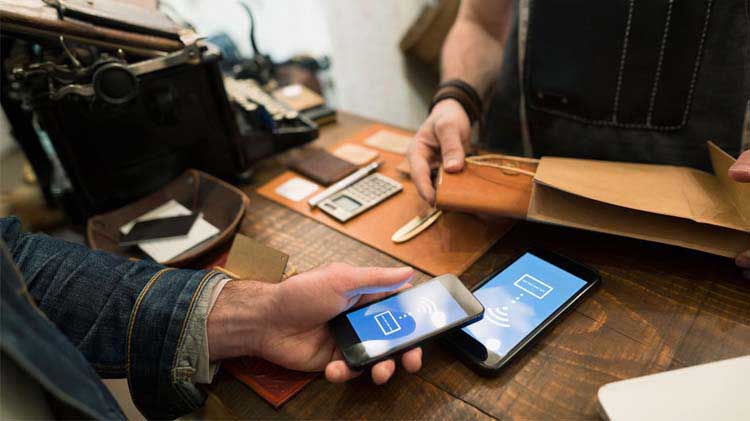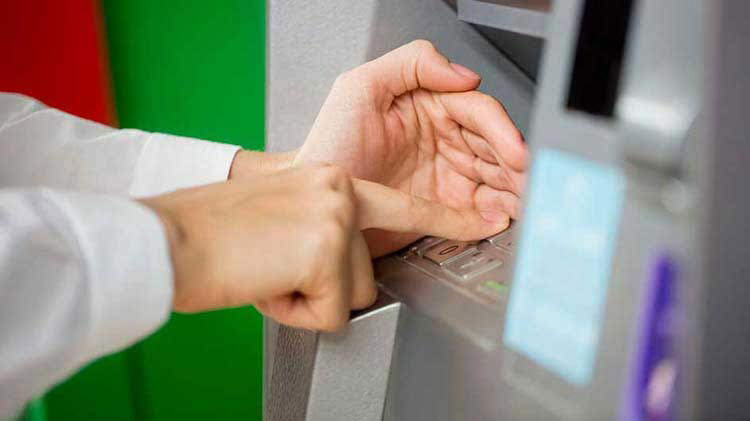What is a mobile wallet? What you need to know.
In our wallets, most of us have an average of three credit cards, a handful of gift cards and coupons, not to mention membership cards, a driver's license and receipts. Mobile wallets, which you can use on a compatible smartphone, tablet or smart watch through an app, let you store your cards and coupons in digital form. They allow you to make purchases, apply discounts and use coupons, either online or in-store.
Although only 39% of consumers use mobile payment systems, that's expected to increase in the coming years. But like with any new technology, there are some things you need to keep in mind before diving in.
Pros of mobile pay
The goal of mobile wallets is to enable convenient transactions and provide a seamless shopping experience, from quickly purchasing your morning coffee to buying that item in your online shopping cart. Here are some additional advantages:
- Flexibility to pay within the app, online or at the brick-and-mortar store,
- Works with a wide variety of banks,
- In-app features and discounts, and
- Loyalty rewards or points.
Cons of mobile pay
Depending on the mobile payment service you choose, there could be some drawbacks:
- Apps such as Apple Pay and Google Pay are operating-system specific,
- Retailer mobile wallets may be exclusive to that store, or
- Some stores may not yet accept a specific card or support a payment terminal.
Big players in the digital wallet space
PayPal – In the United States, 72% of online shoppers have an account with PayPal . This is one of the most popular solutions, as it works across all major devices and users can manage one account to make online purchases, transfer money, and even buy or sell on eBay. PayPal also includes the PayPal Buyer Protection and Seller Protection feature. Even more, PayPal accepts a total of 25 currencies worldwide.
Apple Pay – This mobile wallet for use on Apple devices was the first in the market, and is now available in more countries and accepted at over 50% of merchants in the U.S. It's operating system-specific, uses near-field communication (NFC) technology and customers can use peer-to-peer payment. Apple users have experienced seamless transactions within supported apps and sites, making it a convenient solution for their purchases.
Google Pay – If the ability to split a restaurant bill with your friend is an important feature, Google Pay may offer the most flexible way to do so, as this peer-to-peer mobile payment option works across devices. Google Pay is also operating system-specific for Android devices, uses NFC technology, works with most major credit cards and is accepted in some transit agencies.
Samsung Pay – Owners of Samsung devices have the option of both Samsung Pay and Google Pay, but one of the options will need to be selected as the default mobile wallet. It's also the most accepted by merchants based on availability, as it is compatible across the widest range of terminals because it uses both NFC and magnetic secure transmission (MST).
Chase Pay – Users of the Chase Pay mobile wallet can benefit of having their eligible Chase credit and debit cards preloaded once the app is downloaded, as well as manage their rewards and take advantage of discounts at certain stores.
Walmart Pay – Walmart was the first retailer to get into the digital wallet game, and is convenient for those who already have the Walmart app. Users can quickly check out at the register by using any credit card, pre-paid or Walmart gift card within the Walmart mobile app.
Starbucks – In addition to saving time by ordering and paying ahead, customers can enjoy their coffee or food even more knowing they're racking up coupons and perks with the Starbucks loyalty program — Starbucks Rewards.
Are digital wallets secure?
Mobile wallets can be more secure than magnetic strip credit cards because their data is encrypted. But like a credit card or a wad of cash, your phone can be stolen. Two-step verification — where you have one strong password or fingerprint authentication for unlocking your phone, and another password or PIN to get into the mobile wallet app — is an important security measure to adopt.
Consider linking your mobile wallet to a credit card, rather than linking it to a debit card or being charged through your phone bill. You'll likely get the same protections that credit cards offer, and it allows you to dispute fraudulent charges.
Choosing a mobile wallet
The mobile wallet that you choose will mostly depend on the device that you use. And you may end up having multiple wallets if you decide to go with a device-specific wallet plus a merchant wallet such as Walmart or Starbucks.





